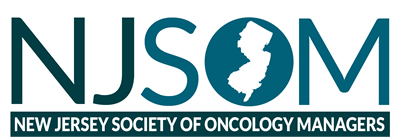Complete Story
KRAS G12C inhibitor evaluated in NSCLC patients with untreated CNS metastases
I’m excited to share findings from an article recently published in the Journal of Clinical Oncology that discusses an investigational use of adagrasib, a KRAS G12C inhibitor developed by Mirati Therapeutics. KRYSTAL-1 (ClinicalTrials.gov identifier: NCT03785249) is an ongoing trial evaluating adagrasib in patients with advanced KRAS G12C-mutated solid tumors. This publication reports data from the phase 1b cohort evaluating adagrasib monotherapy in patients with KRAS G12C-mutated non-small cell lung cancer (NSCLC) and untreated central nervous system (CNS) metastases.
Read the full publication here
By clicking the link above, you will be routed to the Journal of Clinical Oncology. Mirati is not responsible for any content hosted or published on this page.
Preapproval Information: The information presented describes an investigational use of adagrasib. Such use has not been approved by the US Food and Drug Administration. This information is presented only for purposes of providing a general overview of a clinical trial and should not be construed as a recommendation for use of any product for unapproved uses.
Note: This study was supported by Mirati Therapeutics. Some of the authors are or were employees or paid consultants of Mirati.
Intracranial Efficacy of Adagrasib in Patients from the KRYSTAL-1 Trial with KRAS G12C-Mutated Non-Small Cell Lung Cancer Who Have Untreated CNS Metastases
Objective
- The primary objectives were to characterize the safety and intracranial (IC) clinical activity of adagrasib 600 mg twice daily in patients with NSCLC harboring a KRAS G12C mutation and untreated CNS metastases from the KRYSTAL-1 phase 1b cohort
Study Design and Patients
- Patients in this cohort had KRAS G12C-mutated NSCLC with neurologically stable, asymptomatic, untreated CNS metastases, and had Eastern Cooperative Oncology Group performance status of 0 or 1a
- As of August 1, 2022, 25 patients with NSCLC were enrolled, and 19 were evaluable for IC activity by CNS RECIST v1.1 and blinded independent central review (BICR), of whom 14 patients had target lesions and 5 had nontarget lesions only
- The median follow-up was 13.7 months (95% CI, 8.5 to not evaluable)
- The median age of patients was 66 years, the median number of previous systemic therapies was 1, and 80% received prior checkpoint inhibitor therapy
Results
- The confirmed IC objective response rate (ORR) per RECIST v1.1 criteria and BICR was 42% (95% CI, 20.3 to 66.5); the IC disease control rate (DCR) was 90%
- The median IC duration of response (DOR) was 12.7 months, and the median IC progression-free survival (PFS) was 5.4 months (95% CI, 2.7 to not evaluable)
- All patients with an IC response had a dose modification during treatment
- The systemic ORR was 30%, with a median DOR of 5.6 months and a median PFS of 5.3 months
- The concordance rate between systemic and IC disease control was 79%
- Treatment-related adverse events (TRAEs) of any grade occurred in 25 patients (100%); 10 patients (40%) experienced a grade 3 TRAE. One patient experienced a grade 4 TRAE (neutropenia); no grade 5 TRAEs were reported
- The most common any-grade TRAEs (incidence ≥30%) were nausea, diarrhea, vomiting, increased alanine aminotransferase, increased aspartate aminotransferase, and fatigue
- CNS-specific TRAEs, categorized as nervous system disorders, included dysgeusia (24%), dizziness (20%), ataxia (8%), aphasia (4%), confused state (4%), encephalopathy (4%), headache(4%), and insomnia (4%)
For payer and formulary decision makers only.

